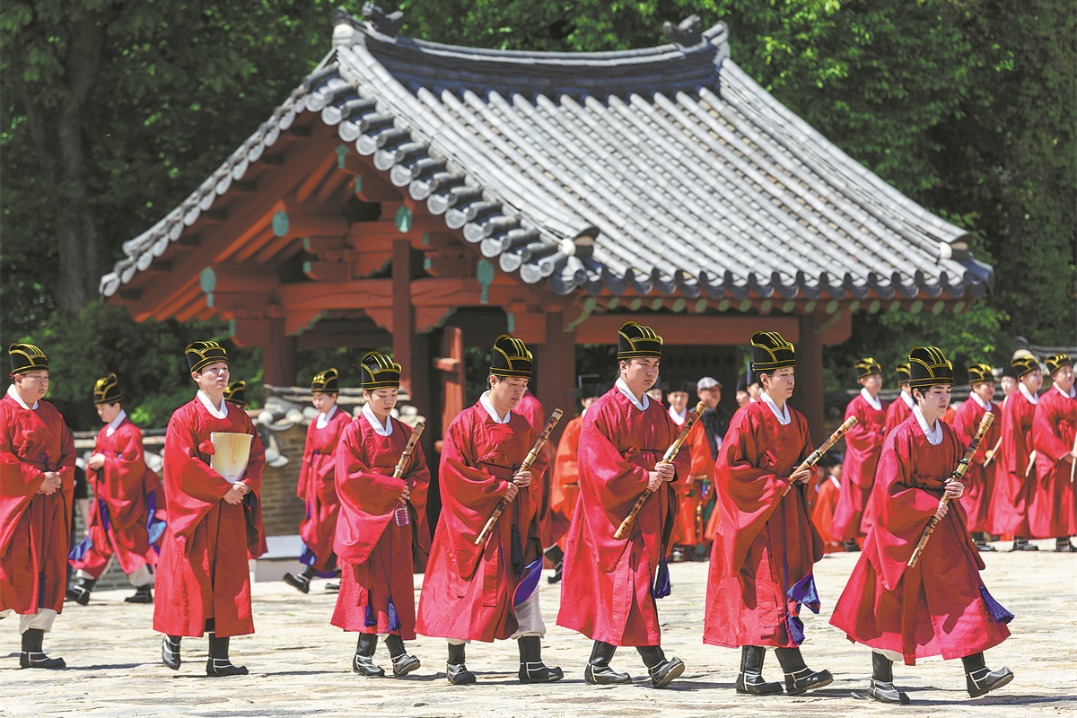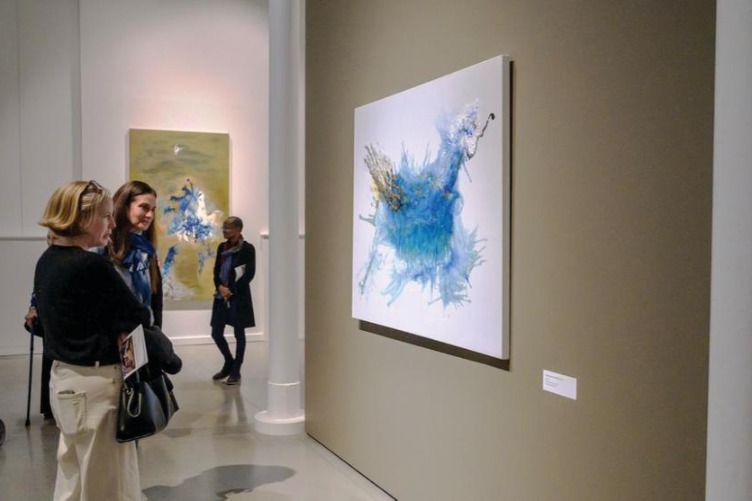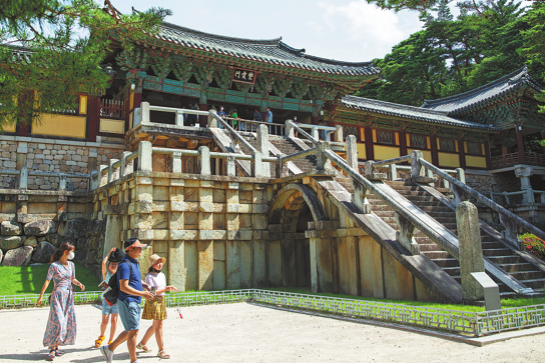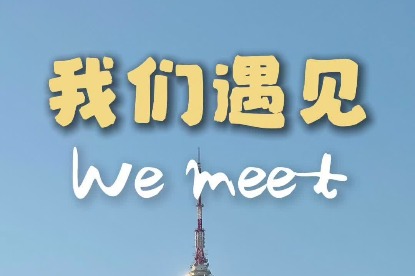Bonding strengthened via music and much more

On Chinese short-video platform Douyin, a group of South Korean artists have attracted 500,000 followers and over 6 million likes by offering Korean cover versions of popular Chinese songs.
"Music does not have boundaries" is the slogan shown on their account page.
Back Nam-jun, manager of the accounts called Ouba Music and Ouba Studio, said the team chose the slogan because they hope people from different countries, despite their language differences, can resonate with each other through music.
"We are in an era where people can enjoy music from another country easily," said Back. "So I think music is something that allows people to share their feelings, regardless of politics and diplomacy."
Back, who speaks fluent Mandarin and graduated from Shandong University in East China, said he was especially touched when a Chinese follower left a comment saying that she often plays their songs to her child to put him to sleep whenever he cries, as their music helps calm him down.
"I felt so motivated when I saw the comment and that gave me the strength to continue our production," said Back, adding that many South Korean people also get to know Chinese pop music for the first time through their videos.
Back's story is just one example of the people-to-people exchanges between China and South Korea, two important neighbors and cooperation partners.
"In the cultural sphere, there is a clear flow of mutual influence (between South Korea and China)," said Woo Su-keun, president of the Korea-China Global Association in Seoul.
In particular, Chinese movies, dramas and social media content are naturally consumed by the young generation, while South Korean pop culture is also liked by many people in China, said Woo.
Woo said his association will continue to promote youth, cultural and sports exchanges between South Korea and China, encourage the establishment of sister-city relationships between the local governments, and advocate industrial cooperation through forums in areas such as sustainability and artificial intelligence.
"We believe with leadership from high-level government officials and continuous efforts from civil society, China and South Korea relations will advance toward a new phase of more pragmatic, win-win cooperation and mutual trust," said Shin Kyung-sook, president of the Korea-China Economy and Culture Education Association.
Shin said her association will also focus on implementing educational cooperation initiatives to encourage youth exchanges, as well as organizing exhibitions and even establishing a mechanism for digital cultural content to encourage collaboration in emerging fields such as AI art, metaverse tourism, animation and gaming.
"We will also support small and medium-sized enterprises in tourism, food and beverage, and education industries to participate in bilateral cooperation projects, in order to create a sustainable ecosystem for people-to-people exchange," she said.
Back said he has also been organizing Chinese and Korean language exchange activities in Seoul for about a year, and opened a Chinese classroom in May for people to meet up regularly.
Noting that many of the participants are interested in Chinese culture, Back said they often receive requests to translate songs from popular Chinese dramas to Korean, including the song from urban romance The First Frost.
In the future, Back said he hopes to get the chance to busk or do street performances in China, in order to have more direct interaction with Chinese audiences and connect people through music.
Xue Jingqi and Ni Xuechun contributed to this story.
kelly@chinadailyapac.com

































